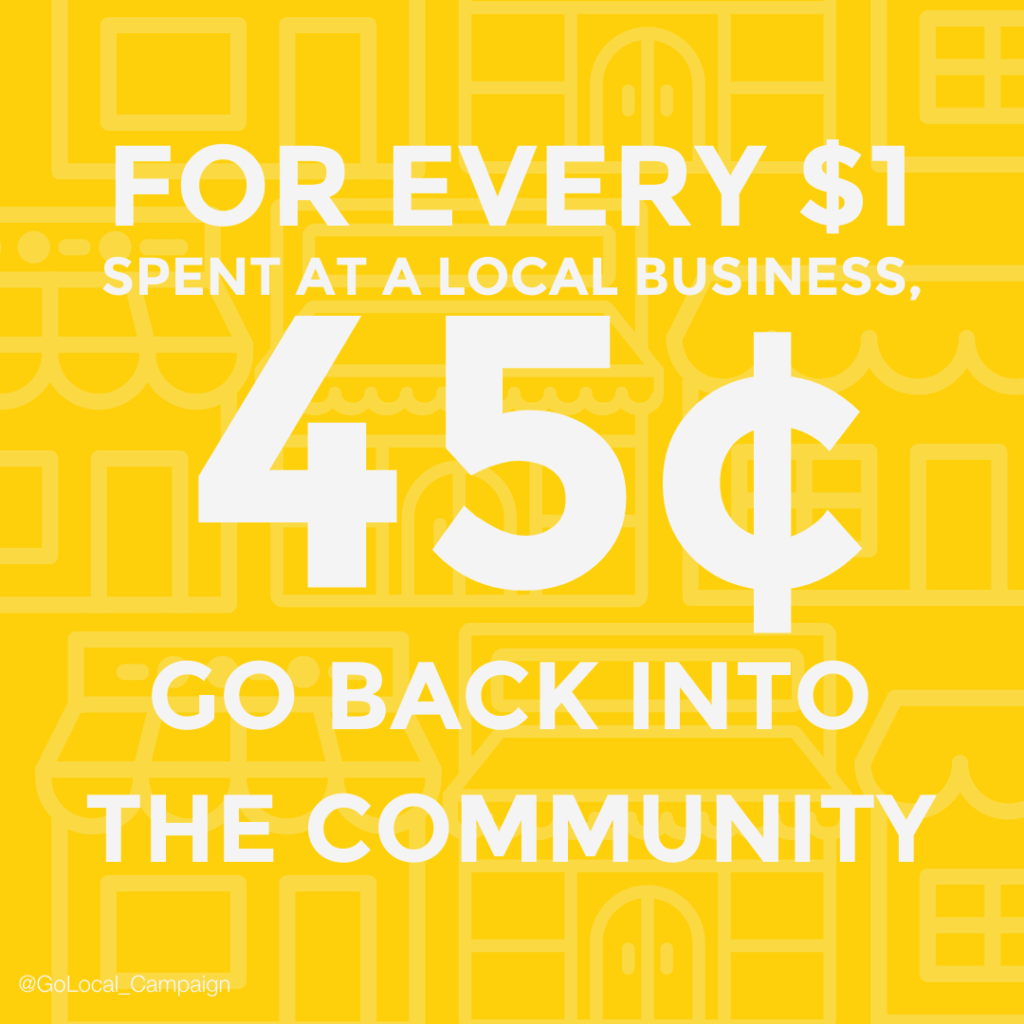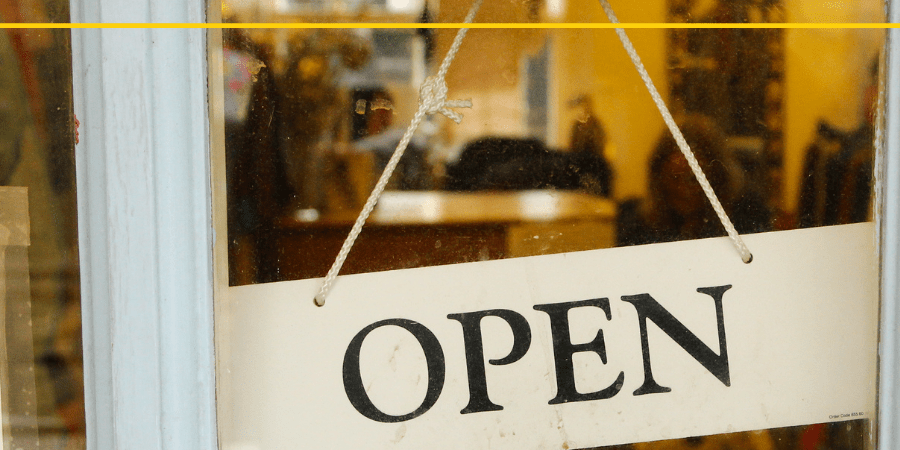One of my favorite things about working at Entertain Impact is getting to learn about so many important issues facing our world right now. Issues I care about, but that I may not know what to do about. Or, frankly, issues that align with my values, but that I’ve just been too busy to give my attention to. One such issue centers on local small businesses.
If you’d asked me a year ago, of course, I’d tell you I support local small businesses. I’d say that to you with my Starbucks in hand. Then, I’d proceed to confirm my in-app Amazon purchase. And I’d see no irony in any of that.
Is it bad to love the coffee from Starbucks and the convenience of Amazon? No. But as my grandmother always cautioned, “Everything in moderation, Neda.”
I never made the connection that spending money locally, keeps my money local—duh
In many areas, commercial business makes up to 20-30% of the tax base. funding local infrastructure, hospitals, schools, parks, and social services. Beyond the tax dollars, local businesses mean job opportunities for local residents. Not to mention the energy, hustle and bustle, and human-to-human interactions that are all natural extensions of having stores, businesses, restaurants, and shops that we get to visit and patronize on a daily basis.
Digging deeper, I learned that it’s not just important to go local, but, if possible, it’s ideal to go small as well. What that means is that having a big-box chain around the corner is great for a neighborhood, but a strong small business community is an even greater sign of neighborhood vitality and self-sustenance. Rates vary based on region and business type, but even the most conservative accounts report that $1 spent at local independent small businesses generates $0.45 in secondary local spending, compared to $0.14 for big-box chains.
Nearly half of my locally spent dollars are recirculated in my local economy
Independent small businesses tend to be better for local economies in a few ways:
First, they hire local residents. All of those people then redistribute a portion of their earnings within the local economy. Second, independent small businesses tend to source locally. Not only is the supply chain more likely to be local, but so are service consultants, like marketers, accountants, designers, and printers. Third, “small businesses donate 250% more than larger businesses to local non-profits and community causes.”
Making a pledge to Go Local
Are my consumption habits leading to the demise of my own community? Should I stop shopping on Amazon for everything? Again, I go back to what my grandma always said about moderation.

A study by Civic Economics, “concludes that even modest shifts in spending patterns can make a big difference to the local economy.” If residents were to shift an additional 10% of their current spending from national retailers and chains to local businesses, it would generate hundreds of millions of dollars in local economic activity. That’s a hugely outsized impact.
Not only am I making that commitment, but our team is currently working to build a coalition of business owners, community leaders, landlords, and consumers to galvanize a movement around that 10% pledge. We intend to do it by spreading the word: For every $1 spent at a local business, 45 cents go back into the community, funding neighborhood schools, parks, services, and infrastructure. From educating people about the critical role that small businesses play to sustain community vitality to incentivizing consumers to source products and services from local vendors, we’re excited to roll up our sleeves do our part to support the small business community.
Learn more about and help support Go Local here.
This post was written by Neda Azarfar.
To stay up to date on the latest from Entertain Impact, subscribe to receive our emails and follow us on social media:
SIMILAR BLOGS:




